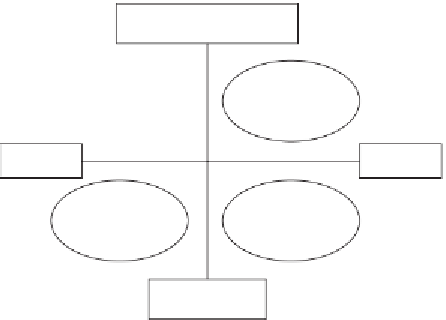Agriculture Reference
In-Depth Information
and describes it positively as a form of recreation, Phillippe conceptualized shopping as
detrimental to his ecological footprint, and he spends considerable time and energy try-
ing to meet basic needs by minimizing waste and consumption of disposable materials.
To put these different perspectives into context, in the following section we present
a typology of food politics that maps out the complexity of consumer meanings. Our
objective here is not to discover new types of consumers, but to capture, with greater
clarity, some of the nuanced meanings of consumer politics, thereby improving our
ability to understand the multiple manifestations of politicized food consumption. This
typology is put forward as primarily empirical, rather than normative; our aim is to
improve understanding of consumer motivations rather than cast judgment on “good”
versus “bad” consumption choices. In addition, we want to emphasize that this typology
presents ideal-types, and is not meant to represent a particular sample of consumers.
Indeed, one consumer may articulate different aspects of the typology at different points
in his or her lifetime, or even within a single interview. The consumer politics literature
assumes that apolitical consumption is the dominant mode of consumption, although
political forms of consumption represent an increasingly popular alternative (see, for
example, Barnett et al 2005; Kriflik 2006; Shaw, Newholm, and Dickinson 2006). We
deliberately avoid speculating on the relative distribution of consumers within these
ideal types, because our studies had very specific recruitment criteria and prioritized
recruitment of politically oriented consumers—the main focus of our discussion below.
In short, this typology is intended to clarify the range of meanings involved in consump-
tion politics, rather than measure the impact of these behaviors on the food system.
Figure 26.1 displays the dimensions of food politics along two separate axes, one to
reflect politics (horizontal), the other consumerism (vertical). The politics dimension
captures the extent to which people explicitly connect their consumer choices and food
preferences to structural issues in the food system, such as social change, social jus-
tice, and sustainability. Here we draw on Stolle and Hooghe (2004, 280) who argue that
political consumption is directed by motivations expressly linked to collective—rather
Sacrice/simplicity
Frugal
consumption
Ecological
citizenship
Apolitical
Political
Mass
consumption
Eco-
shopping
Consumerism
Figure 26.1
Typology of meanings embedded in consumer food politics.


Search WWH ::

Custom Search